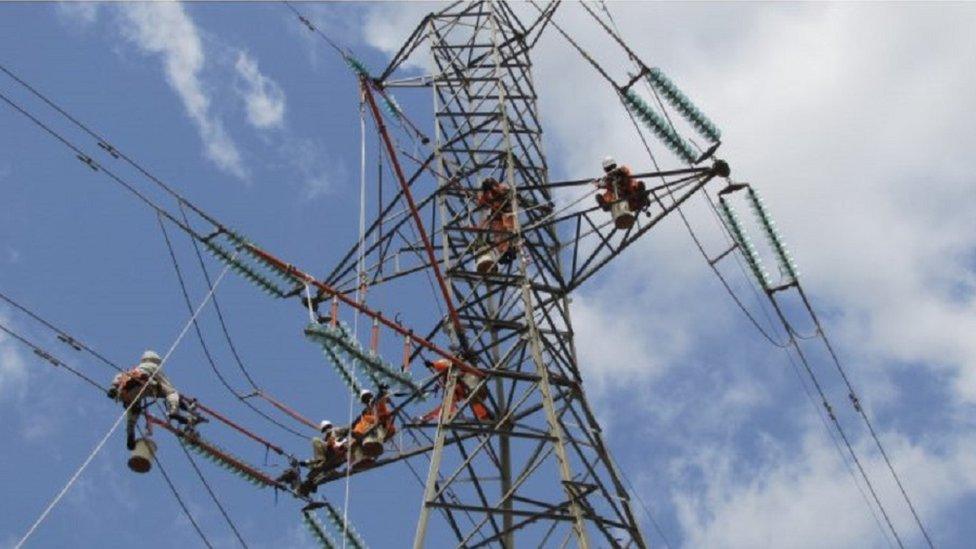Ghana electricity: New power tax put on hold after public outcry
- Published

Ghana has for several years been experiencing power shortages
Ghana's government has suspended plans to implement a new 15% tax on power, following a public uproar that it will worsen the cost-of-living crisis.
The value-added tax (VAT) was to be levied on domestic consumers of electricity.
The government introduced it to boost its revenue after pressure from the International Monetary Fund (IMF).
But labour unions opposed the tax and announced nationwide protests against it next week.
Authorities now say the tax has been put on hold until talks are held to resolve the dispute.
It comes a few days after the government started to implement a fuel emissions levy, sparking mixed reactions.
Ghanaians are now required to pay an annual levy for the carbon emissions produced by their petrol- or diesel-powered vehicles.
Critics fear that the additional taxes could have a ripple effect on the struggling economy, further intensifying the cost-of-living crisis that has already pushed up the prices of necessities like fuel.
In a statement on Wednesday, the finance ministry directed the two main power distributors - Electricity Company of Ghana (ECG) and the Northern Electricity Distribution Company (NEDCO) - to put the new levy on hold.
This is to allow for "extensive dialogue and also to get the buy-in of industry players and labour unions, following the grave concerns raised about its impact on consumers and businesses," the statement said.
But the Trades Union Congress (TUC) said the government was yet to officially communicate its decision to them.
Therefore, plans to hold protests, starting next Wednesday, remain in place, Joshua Ansah, TUC's deputy secretary general, told the Ghana News Agency.
Trade unions say the introduction of additional taxes will burden families and companies, exacerbating the already high cost of doing business.
"Our message to the government is very simple - we cannot pay VAT on electricity," Mr Ansah was quoted as saying, and demanded that the tax be dropped immediately.
Ghana is currently going through its worst economic crisis in a generation, and the government was forced to sign a $3bn (£2.4bn) bailout programme with the IMF last year.
The IMF agreed to the bailout, on condition that the government took steps to increase its revenue.
The energy sector in Ghana is seen as being in financial distress.
Private electricity suppliers are owed $1.6bn by the government, according to Elikplim Kwabla Apetogbor, the head of the organisation representing them.
Ghana has for several years been experiencing power shortages, popularly known as "dumsor", which means on and off in the Akan language.
The West African country gets much of its electricity from hydro and thermal sources, but these are often poorly maintained.
The country has in the last few years become heavily reliant on gas as a major source of energy for electricity generation and any shortage in gas results in power cuts.